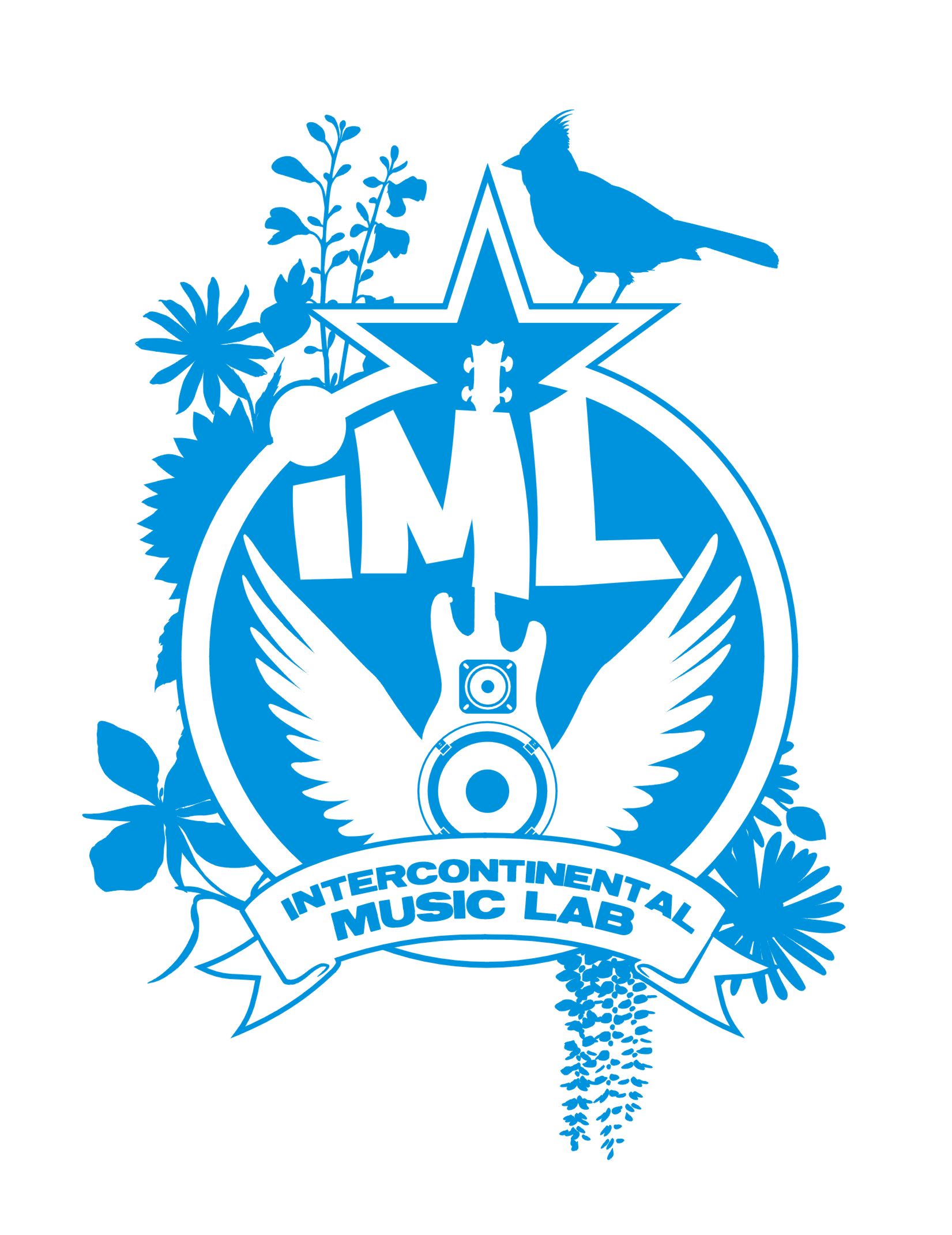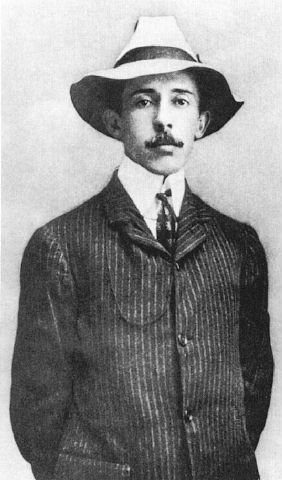Superheroes of Science
Interview with
Ben - Barney Brown and Rob Fisher are part of the Intercontinental Music Lab, a loose collection of musicians from as far apart as Tokyo, Sydney, Milwaukee and Cambridge. They came together to create an album inspired by science and scientists. Due to be released for free later on this year we were treated to a sneaky preview.
 Barney - The idea for the album is to create something when you're in a position when you're not creating anything. You've got friends around the world who also want to create things and they're also not doing anything. I decided I'd come up with a concept for an album and we would all record backing tracks around that concept. Then we'd all swap them round and record vocals over those backing tracks. Hopefully we'd have a cohesive album within the space of about three months. From that point onwards it was a case of choosing a topic which we could all write music about and it seemed obvious to choose science and the world of science. We've got the interesting emotional journeys of scientists but also the intricate and bizarre details of the science they were performing or discovering.
Barney - The idea for the album is to create something when you're in a position when you're not creating anything. You've got friends around the world who also want to create things and they're also not doing anything. I decided I'd come up with a concept for an album and we would all record backing tracks around that concept. Then we'd all swap them round and record vocals over those backing tracks. Hopefully we'd have a cohesive album within the space of about three months. From that point onwards it was a case of choosing a topic which we could all write music about and it seemed obvious to choose science and the world of science. We've got the interesting emotional journeys of scientists but also the intricate and bizarre details of the science they were performing or discovering.
Ben - Quite often you find that science-inspired music is educational. It's there to try and sell the message whereas this isn't. This is merely music inspired by scientists.
Barney - That's right. In some cases the scientists came first followed by the music and in other cases the ukulele came first and then it was a case of discovering the scientist that may have a ukulele in his backpack. In the case of that we discovered an organisation in the pacific who were looking after some islands and trying to protect them from invasive species. It seemed to be a nice mix for a solitary ukulele and a scientist sitting against a tree and counting birds.
Ben - The scientists that you have aren't necessarily scientists everyone will have heard of. You're not going for Einstein and Darwin. Some of them are a little bit obscure. What was it that drove your choice of scientists to include?
Rob - I think everyone took very different approaches. In some cases they started off with a scientist, perhaps the scientist particularly appealed to the or the scientist gave them a wide range of opportunity for the lyricist to record stuff over. In other cases I think the backing track came first and they tried to find a scientist to kind of fit it over. With the two songs I did one was one approach and the other was the other approach.
Ben - Which two scientists were they?
Rob - I did Ignaz Semmelweis. For him I found the scientist first and then recorded the backing track. He's a Hungarian scientist who discovered a link between producing childbed fever and washing your hands. He was ridiculed by the medical world. They didn't believe him and it drove him to drink and ultimately to death. There seemed a lot of opportunity for the lyricist in there to come back round.
Barney- It occupies the darker palette of the album.
Rob - It's on the darker side! On the lighter side I wrote a track without any scientists in mind with a banjo. That's quite a happy little marchy tune. I spent a long time trying to find a scientist to fit its speed, so to speak. It ended p with John Muir because there just seemed to be a sort of nature vibe to the track. I just had this picture of John Muir marching through Yosemite bidding good morning to the birds and bears and everything.
Ben - So far you've mentioned Hungarian folk music and bluegrass but there's lots of different styles of music. Were these all inspired because all the scientists you have are international? You have scientists from all over the world?
Barney - I think musically we all come from similar and different backgrounds. We've tried our hand at various different genres and I think knowing that we're going to record a piece of music and hand it over to our so-called friends. In some cases we decided our music would perhaps be difficult to write vocals for. It set a challenge because at the centre of this project is trying to encourage creativity. The different styles of music I think was probably more of a creative journey for the musicians rather than the scientists inspiring it. Although, like I say the ukulele very much found a scientist to accompany it. Similarly, as Rob said John Muir found a slide guitar in his back pocket.
Ben - A lot of these scientists have fantastic stories. It seems an untapped resource of incredible life stories. A lot of the songs as a result are quite biographical. Were there any stories that really stood out?
 Barney - I had to write some lyrics about Alberto Santos-Dumont who made Paris his home. He was very much interested in flying machines. Both personal flying machines but also flying machines for the mass market. He really believed that through flight he could unify people around the world and wars and such like would become obsolete as people used flying machines to visit each other and settle their differences. He worked through twenty different models of his flying machine. He used to fly to a particular bar in Paris and tether his flying machine to the lamppost and then enter the bar and then entertain and then hop back into his flying machine and fly home. That was quite wonderful, really.
Barney - I had to write some lyrics about Alberto Santos-Dumont who made Paris his home. He was very much interested in flying machines. Both personal flying machines but also flying machines for the mass market. He really believed that through flight he could unify people around the world and wars and such like would become obsolete as people used flying machines to visit each other and settle their differences. He worked through twenty different models of his flying machine. He used to fly to a particular bar in Paris and tether his flying machine to the lamppost and then enter the bar and then entertain and then hop back into his flying machine and fly home. That was quite wonderful, really.
Ben - It seems to be more the characters of the scientists themselves than the science that has inspired this. Is there any particular track that's inspired by a particular act of genius or a particular discovery?
Barney - I think probably the discovery of x-rays by Wilhelm Conrad Rontgen. Olly Ahast and his kids did a wonderful job of explaining x-rays and also the humble character of Wilhelm who didn't want to be the subject of the x-rays. Hence the name not being Wilhelm-rays or Conrad-rays.
Ben - What do you think the future is for science-inspired music?
Barney - I think we've only started tapping at the seam. Hopefully it will inspire others to do a similar experiment. The whole thing is really a musical experiment. In a way we are scientists.
- Previous Tracking Penguins from Afar
- Next The Importance of Monster Hunters









Comments
Add a comment